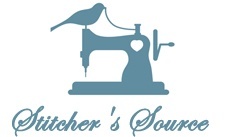Residential VS Industrial Sewing Machines: What is the Difference?

Sewing machines that are labeled “residential”, “personal”, “home”, or “domestic” all refer to machines that were designed for use at home. “Commercial”, “industrial”, or “professional” machines are those that are made for more frequent use like you would need in any type of sewing business. Originally, the distinction between residential vs industrial sewing machines was that of one them was used by housewives to make the family’s clothes and the heavy duty machine that was used in manufacturing to produce garments or other sewn items all day long.
Not surprisingly, machines that are made to put in more hours during the day are stronger, more powerful, and typically more expensive than those made for personal use. There are also other differences that may determine which type of machine is the best one for your use.
| Residential | Industrial | |
| Types of Stitches | Even the simplest home sewing machine comes with several stitch options and many come with anywhere from 20 to 100 and more. | An industrial machine is designed to perform a single stitch or function to place less wear on it. |
| Quality of Sewing | Changes in thread, material, or tension can result in low-quality stitches that require adjustment. | Provides the highest quality of stitch. |
| Sewing Speed | Most have a similar maximum sewing speed that allows the sewer to go at a comfortable pace. | Industrial machines are made to go at a faster speed to increase sewing production. |
| Maintenance Requirements | Most models require no maintenance and, unlike models of the past, have their own built-in oil system. When repairs are required, parts and service are usually easy to find, especially for top brands. | Due to their industrial use and the volume of fabric fibers that goes through them, these machines must be constantly cleaned and oiled. |
| Thread | All types and weights of thread can be used to sew different types and weights of fabrics. | Heavier deniers of thread are often used to sew commercial products. These threads are sometimes a problem for the sewer when they hang up in the machine. |
| Cost | A good quality basic sewing machine will cost just over $100 with specialty machines and those with more features costing anywhere from under $200 to more than $600. | Most good quality industrial sewing machines are more than $1,000. |
Residential VS Industrial Sewing Machines: Which One is Right for You?
Often, sewers who are asking the question about the difference between these two types of machines are considering their investment for operating a small or home-based sewing business. Unless you plan to specialize in something like curtains that only require a single stitch, an industrial machine may not be the right choice for you. You may also require a standard sewing machine to do different stitches for whatever you want to sew.
Heavy Duty Sewing Machines
Industrial machines are almost made of solid metal while residential machines are made largely of plastic. Most of the top brands have “heavy duty” sewing machines available that are made with more metal than other residential machines and many of them have more powerful motors. These machines combine some of the best features of residential and industrial machines and often provide a happy medium for those who need both flexibility and durability in the machine they buy. For some, it will make the difference in having to buy more than one machine to get everything you need.


